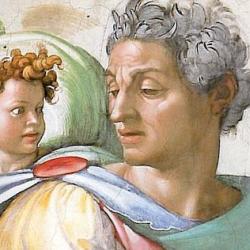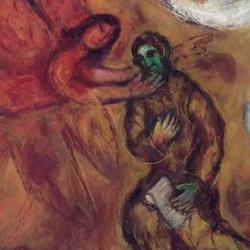INTRODUCTION
Isaiah 8 ends with Judah stumbling into the darkness of exile. But Isaiah and his “children” have been delivered from the “way of the people” (8:11, 18). For them, light dawns.
THE TEXT
“Nevertheless the gloom will not be upon her who is distressed, as when at first He lightly esteemed the land of Zebulun and the land of Naphtali, and afterward more heavily oppressed her, by the way of the sea, beyond the Jordan, in Galilee of the Gentiles . . . .” (Isaiah 9:1-21).
LIGHT DAWNS
The first section of chapter 9 is a conclusion to the previous chapter. Yahweh threatens exile to most of Judah, but He promises that there will be a remnant. All the emphasis is on God’s work on behalf of His remnant. He will give them light, fruitfulness, gladness, and plenty (vv. 2-3). It will be like the victory of Israel in the days of Gideon (v. 4; cf. Judges 6-8), which was like a new exodus, when the yoke of Egypt was removed from Israel’s shoulders (cf. Leviticus 26:13). The reversal occurs because of the birth of a child (v. 6), another of the accumulating references to the child identified as “Immanuel” in 7:14. The child is a Davidic prince (v. 7), but He is something more: His name is “Mighty God” and His kingdom will extend peace and righteousness forever.
HAND STRETCHED OUT
Through the weapon of His Word, Yahweh divides His people in two. Some will see light. Against the rest, Yahweh continues to stretch out His hand in anger (see the repeated phrase in 9:12, 17, 21; 10:4). The image of the “stretched out hand” is also an exodus image, but it’s working in reverse. The Lord delivers the remnant that clings to His word, but the rest have become an Egypt.
MESSAGE TO JACOB
Yahweh threatens the people of the Northern kingdom, “Ephraim” and their capital Samaria (v. 9). They are arrogant (v. 9). Though the Lord has sent judgments against them, they haven’t learned the lesson. When the Lord topples their brick houses, they think they can rebuild with tone; when he cuts down their sycamores, they replace them with cedars (v. 10). As He did in the days of Solomon (1 Kings 11), the Lord brings “adversaries” against the Northern kingdom. The Arameans to the east and the Philistines to the west form jaws that will gobble up the North (vv. 11-12). Still, the Lord’s anger is not pacified (v. 12b).
ELDER AND FALSE PROPHET
Yahweh’s sends these judgment to “turn back” His people (v. 13), but they refuse. He cuts off Israel’s head and tail (v. 14), the honorable men and the false prophets (v. 15). Without these leaders, the people are brought to confusion. The will not pity the orphans and widows (v. 17). Yahweh instructed Joshua not to have pity when he carried out the ban against Canaanites, and now Israel herself has come under Yahweh’s ban.
FIRE OF WICKEDNESS
Yahweh’s anger scorches a cursed land of thorns (cf. Genesis 3). Their wickedness itself started the fire, and in His wrath Yahweh gives them over to their destructive wickedness (cf. Romans 1:18-32). They prey on each other, and so Yahweh gives them over to cannibalism (vv. 20-21; cf. Deuteronomy 28:53; 2 Kings 6:24-31).










